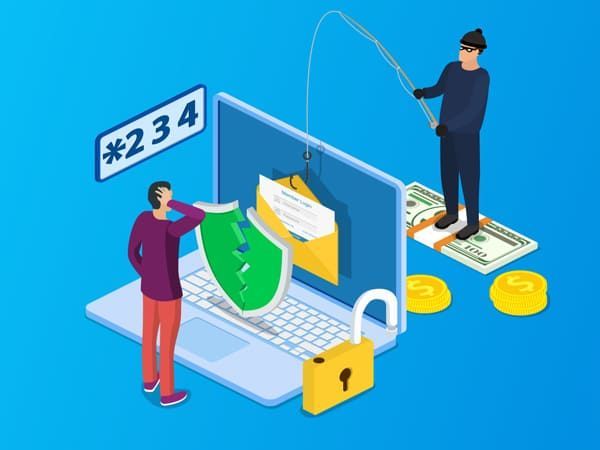15 Sep, 2022
Anyone with a computer is well aware of security concerns on the Internet. As time goes on, security and internet safety becomes more and more of an issue. It’s clear that hackers are becoming more advanced and will continue to find ways to steal our data. With a large part of our lives spent online, it’s just a matter of time before hackers affect you. If you own a business, the sheer amount of valuable information you are responsible for is something to be concerned about. Moving into 2021, data safety will continue to be a growing issue. In this blog, we will discuss SSL and security concerns for your company's website and the types of sites you may be visiting. What’s an SSL? SSL stands for Secure Sockets Layer, also known as Transport Layer Security. This may sound like nerdy talk that doesn't matter much, but the fact is that you interact with SSLs every day. They are specific technology designed to keep your Internet connection safe, especially when secure data is involved. SSLs run a protocol of data encryption to make sure third parties can't see what either party is viewing or sending. This includes sensitive and non-sensitive information, such as passwords, names, banking information, and more. This setup uses a handshaking procedure that both the parties involved agree to use. The data transaction creates a cipher so information can be sent from one to the other in an encrypted format. Theoretically, even if a third party were to intercept your data, it would be gibberish since they don't have the means to decipher it. This is essential for safe Internet communication these days. You and your company likely send highly-sensitive information back and forth online all day long. What used to be something kept safe in a drawer can now become public information because of a malicious hacker. This layer of safety is so standard we don’t even notice it. Sites that have an “HTTPS” in front of their address use some form of SSL or TLS. Managing a TLS/SSL Not only do you want to keep your company's information private, but you need to make sure that customer information stays private as well. Unfortunately, SSLs and TLSs are not a one-and-done procedure. Like any other security protocol, SSLs change over the years. Make sure that any certificate your company's website uses is up to date and effective. You can do this by installing updates as they are released. Think of the SSL protocol like a deadbolt. Having a deadbolt on your door is much safer than a locking doorknob. Yes, there are always people who know how to compromise it, but it is still much safer. Over the years, deadbolt technology has improved and evolved as people learn to bypass obsolete technology. Sometimes, however, it takes working with an experienced locksmith to have it installed correctly. SSLs/TLSs are certainly much better options than nothing at all. However, these protocols, particularly older versions, are still prone to many vulnerabilities. There are numerous common attacks that hackers use to break this encryption. And some of these threats have very colorful names. For example, POODLE, BEAST, CRIME, BREACH, and HEARTBLEED are commonly used attacks, and they are highly successful. Keep Yourself and Your Customers Safe Having your company's private information exposed to the highest bidder can have devastating effects on your operations. Stolen customer information due to a lack of care in your communications could result in lawsuits and legal trouble. Customers have well-deserved expectations: when they share information with you, it needs to be kept confidential and secure. This can be especially true in organizations that deal with sensitive information regularly, such as financial institutions and medical centers. In the hacking community, there is a highly lucrative market for personal information. The dark web is flooded with people selling private information databases to the highest bidder — and there is always "a highest" bidder. If you want to avoid liability, make sure your security protocols are up to date. It is also critical that you maintain them professionally. A relatively small investment in this area of security can end up saving large amounts of money and possibly your business itself. We regularly report on attacks that businesses like yours face daily. But we don't always mention that many of these attacks are successful because the victim has a lax security protocol. The last thing we would want is for you to be another statistic. If your SSL/TLS certificates are getting old and dusty, or (even worse) you don't have any at all, now would be the best time to contact us. As 2021 quickly approaches, these threats are only going to be more significant and more challenging to handle. Our team of security professionals is one of the most experienced in the business. The web can be a scary place, and the last thing you want is to be caught unprepared! By making sure your SSL/TLS certificates are in perfect order, you can rest a little bit easier at night.












